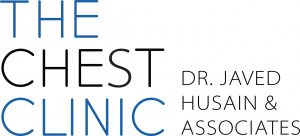COVID, Influenza (Flu) and RSV (respiratory syncytial virus) cause a host of respiratory illnesses ranging from mild symptoms to life threatening pneumonia.
Their overlapping symptoms, and similarity with common cold cause delay in the diagnosis and hence timely and proper management.
RESPIRATORY SYNCYTIAL VIRUS (RSV)
It is a virus affecting air passages and lungs. It is a common viral infection that mostly affects young children. Older children and adults may also be infected with RSV.
How does it spreads?
It is a contagious infectious disease, that is easily spread from person to person.
The virus is carried via respiratory droplet. A person can contract the respiratory syncytial virus through their mouth, nose, or eyes, when an infection person coughs or sneezes close to you. The virus can also spread by direct touch, such as hand-to-hand contact, on hard surfaces like toys, crib rails, and countertops, the virus can live for hours. After contacting a contaminated object, if you touch your lips, nose, or eyes, you are likely to pick up the virus. An individual remains infectious from the start of the symptoms to up to 10 days of illness.
Sign and symptoms:
The virus affects our breathing passages, which start from the nose, throat, air passages (bronchioles) and down to the lungs. Symptoms are usually mild including: Coughing, Runny nose, sneezing and wheezing (abnormal breathing sounds. Some general signs like fever, loss of appetite and irritability.
In severe cases, air passages in the lung get severely inflamed leading to fast/rapid breathing, nasal flaring, purses lip, bluish discoloration of skin which is a sign of low oxygen supply to the tissues.
High risk group developing severe infection: newborns particularly premature infants, older adults, those with heart and lung disease, or those with weakened immune systems, are susceptible to severe infection from RSV.
Children older than 5 years and adults may not have any symptoms of RSV, or they’ll have very mild symptoms. If a child or adult does get symptoms of RSV, they’re similar to symptoms of the common cold and include: Runny nose, Congestion, Mild headache, Sore throat, Cough, Fatigue and Fever.
Diagnosis:
A detailed medical history and examinations helps in making the diagnosis. Nasal swab for PCR confirms the diagnosis.
TREATMENT
RSV usually goes away on its own within one to two weeks. Milder symptoms can be treated at home with antipyretics (medicine for fever like acetaminophen or ibuprofen), drinking fluids to stay hydrated and eating regularly even if you have a low appetite, applying saline nasal drops to loosen mucus in your nose and getting plenty of rest.
For severe RSV one should immediate attention from a health care provider, as it may require hospitalization.
Antibiotics aren’t a treatment option for viral infections like RSV, unless a superimposed bacterial infection is suspected. In such it will be a decision of your health care provider for choosing appropriate antibiotic.
